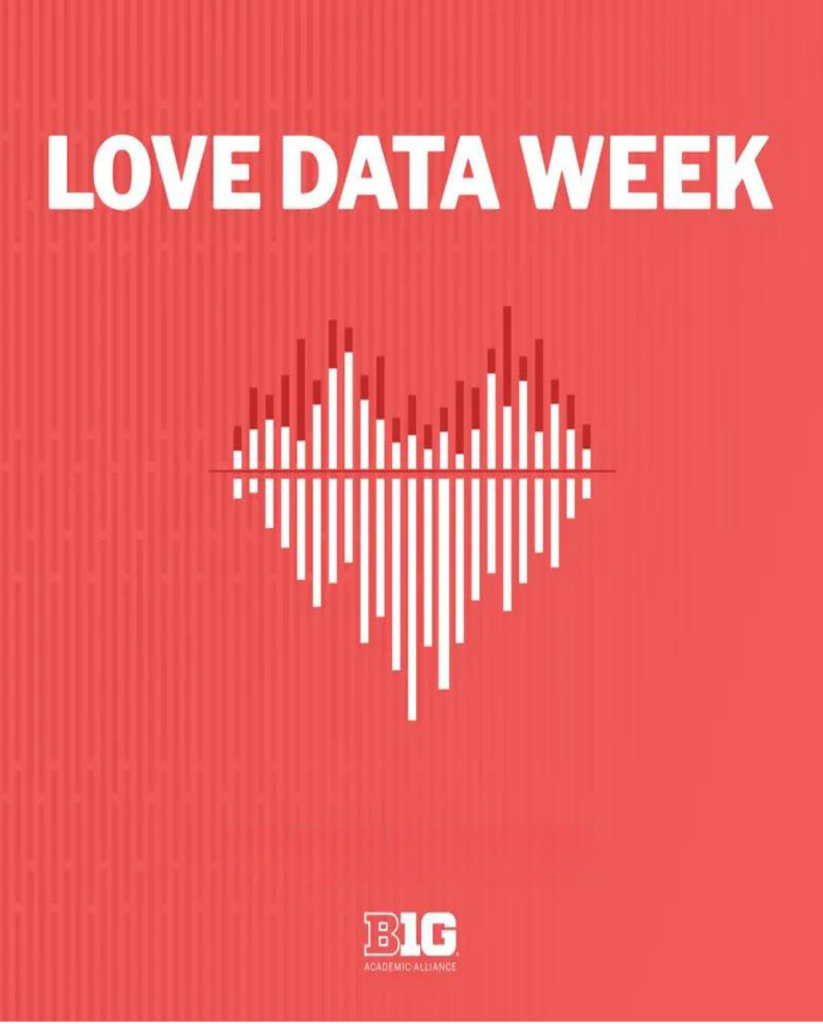International Love Data Week, which takes place February 10 – 14, 2025, is the perfect time to get familiar with some of the resources for managing and sharing research data that are available at UW-Madison. Explore the resources below to find the matches for you and your data.
- Researcher Toolkit – A portal for UW-Madison faculty, staff, and student researchers that points to helpful resources throughout the phase of a research project. Includes resources for planning, gathering data, analyzing and visualizing data, publishing research artifacts, and closing out projects.
- DMP Tool – A free, open source application that helps researchers create data management plans (DMPs), which are required by many funding agencies as part of the grant proposal process. The DMP Tool contains templates for many funders and allows you to request a review of your plan draft from a Research Data Services consultant.
- Repositories
- MINDS@UW – An open access institutional repository, designed to gather, distribute, and preserve digital materials related to the University of Wisconsin’s research mission. Content may include research papers and reports, pre-prints and post-prints, datasets and other primary research materials from current faculty, staff, and students of the UW-System.
- Dryad – An open access data publishing platform and community committed to the open availability and routine re-use of all research data. Through our institutional membership, depositing in Dryad is free to UW-Madison researchers. Check out their submission requirements page to see if your data is a good fit.
- Workshops
- The R Series and The Python Series – Programming workshops offered as part of the UW Libraries Graduate Support workshop series. Learn R or Python with a focus on skills for computational research. You can attend any or all of the workshops.
- Data Science Hub Workshops – In collaboration with the UW-Madison Carpentries community, these workshops teach researchers the skills and tools needed to analyze, model, and gain insights from data, with an emphasis on reproducible workflows.
